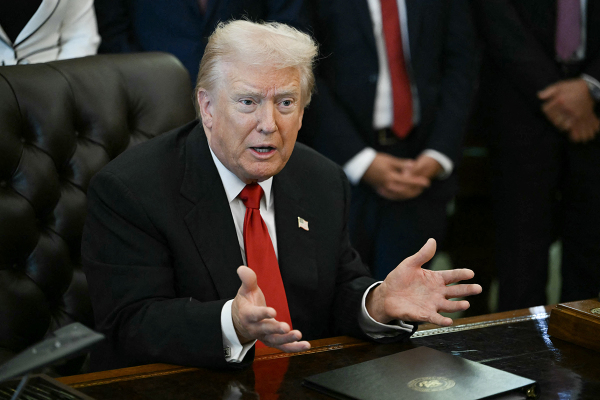UN Votes to End Military Mission in Libya
The United Nations Security Council voted unanimously Thursday to end military operations in Libya.
The move brings a halt to the seven-month operation, which included a no-fly zone and other measures as rebel forces in the country battled former dictator Muammar Gaddafi for control of the country.
Libya's interim government previously requested the U.N. wait until the National Transitional Council decides whether to allow NATO forces to help secure its borders.
The 15-nation council’s unanimous decision takes effect Oct. 31, just a week after Gaddafi’s death and the National Transitional Council’s announcement of liberation.
The measure effectively ends NATO’s legal authority to carry out air strikes in Libya.
"We expect the NATO council to act in accordance with this decision of the Security Council of the United Nations and to suspend its operation at midnight of Oct. 31," said Vitaly Churkin, permanent representative of Russia to the U.N.
NATO is slated to confirm its end to the Libya mission Friday.
Individual members of NATO, including the United States, can offer aid and military assistance to Libya outside the command of 28-nation organization, NATO officials said.
It is unclear how nations will help the new Libyan government after the U.N. resolution goes into effect.
The U.N. resolution unfreezes the Libyan National Oil Corporation assets and eases restrictions on the country’s central bank and other economic institutions, according to reports. The ban on international flights by registered Libyan planes will also be lifted at the end of the month.
The Security Council resolution loosened the terms of the arms embargo, previously enforced by NATO troops, so that Libya can acquire arms to protect its own borders, according to reports. Some aspects of the embargo, however, are expected to remain in place.
NATO secretary-General Anders Fogh Rasmussen said the U.N. resolution showed that the original mission was completed, but it still stands ready to help the new Libyan government in its transition, particularly in defense and security sector reforms.
“I wouldn’t expect new tasks beyond that,” Fogh Rasmussen said.





















